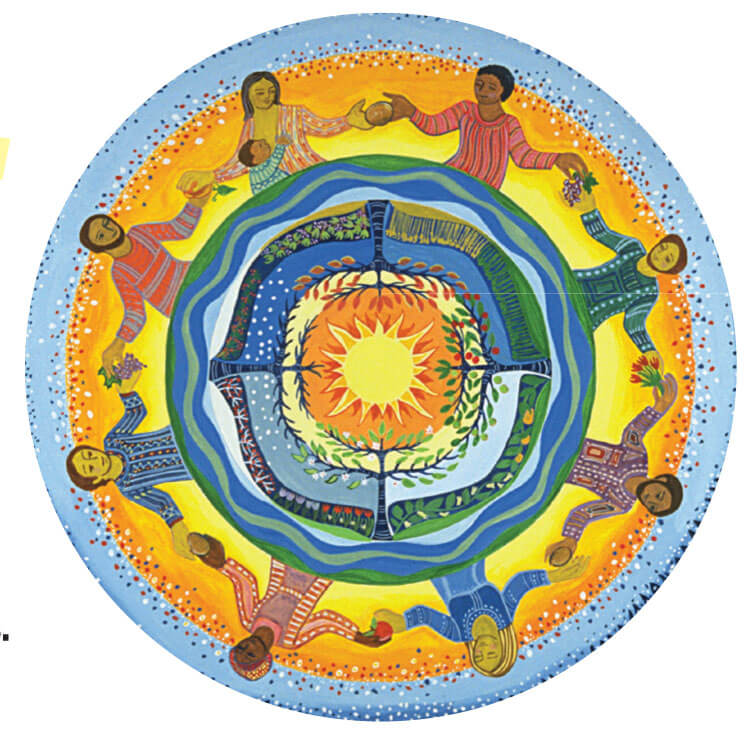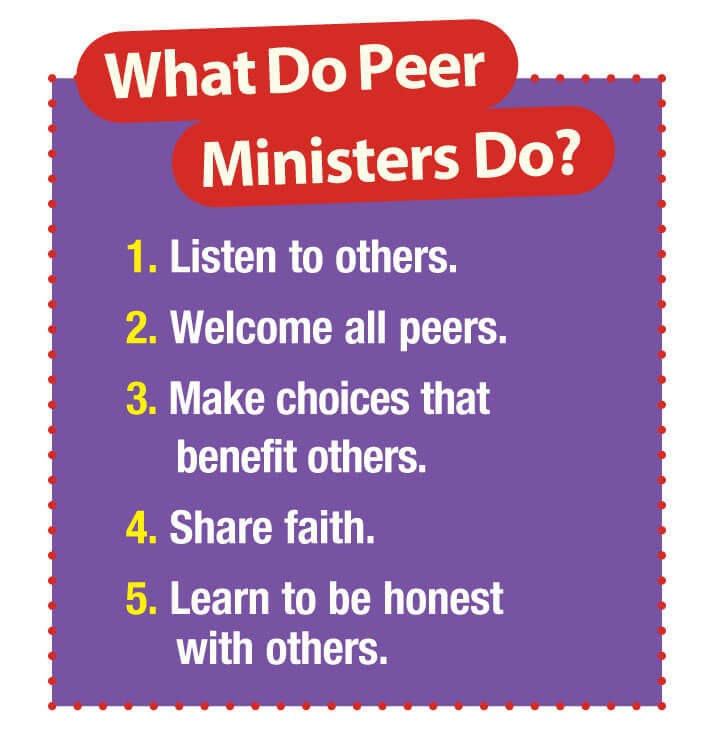
From the first days of Jesus’ ministry in Galilee, he calls men and women to minister to their peers.
The message Jesus announces is simple: God’s kingdom is near. He invites listeners to get an attitude — an attitude of believing, a change of heart that opens their lives toward God.
To four ordinary fishermen — Peter, Andrew, James, and John — Jesus says, “Come, follow me. Fish with me for people to gather into my new community.” He raises up Peter’s mother-in-law, who becomes the first woman to give her life to serving the new community.
Jesus travels about the villages of Galilee, healing lepers as he does in Sunday’s gospel, forgiving sinners, freeing people from addictive spirits, and welcoming outsiders into his new company of disciples.
The leper in this Sunday’s gospel shows a believing attitude when he begs Jesus to make him whole. Jesus feels compassion for the man, who must live apart from healthy people. Jesus reaches out and heals him. No wonder the man tells everyone he meets. He wants others to be whole and belong to Jesus’ new community as he does.
Jesus calls us to share his revolutionary attitude. He calls us to collect trolls and outcasts and welcome them into our groups. Today we don’t refer to ourselves as fishers of people but rather peer ministers. Ministering means attending to others, listening to them, connecting outsiders with insiders.
Peer ministry is serving people of one’s own age group. Peers know how important it is to go to the prom, how difficult math tests are, how rarely parents extend their curfew. Peer ministry is as ordinary as listening to a friend who needs to talk, comforting a friend who is crying, inviting a new classmate to a party, or encouraging a talented classmate to try out for a team or play.
Some schools and parishes train special peer ministers. For example, a group might prepare youth liturgies and retreats, or reach out to those getting left behind socially or academically. They may learn how to connect peers in trouble with counselors or treatment programs. Schools sometimes train peer ministers in mediating violence and confrontations between students.
Teen years bring a dawning awareness of what other people think of us. We notice who wears the latest shoes or shirts or designer jeans. We notice who listens to the music we like. We notice who looks attractive, who is coordinated at sports, who says dumb things, who is clueless.
To be popular themselves, teens drop old friends or shun unpopular kids, putting them outside the in group the way lepers were kept away from the villages of healthy people in Jesus’ time. A leper is the classic outsider in Jesus’ time.
Schools don’t have lepers, but they do have students whom others treat as if they had a contagious disease. The disease is social. No one wants to be seen with them. No one wants to get labeled loser.
In these years we do terrible, hurtful things to one another. School shootings express the anger of students who feel they are outcasts. Many other students report feelings of isolation and pain or incidents of being harassed or picked on so extreme they begin to think of suicide. Our feelings of self-worth rise and fall on how we fit in during these years.

The teen years challenge young people to make and keep friendships, to break unhealthy relationships, and mend broken friendships. For each of us, learning who I am as an individual means learning who I am in relation to others. We need practice to learn how to say no and break up, how to say hi and risk getting to know someone.
Because each of us influences others, we all act as peer ministers. We must choose to meet each person with an open and compassionate heart, treat all our peers with respect and dignity, try hard not to confine people to labels, and be open to the ways the Spirit moves us to minister to all groups.
By his word, through signs that manifest the reign of God, and by sending out his disciples, Jesus calls all people to come together around him.
Catechism of the Catholic Church #542
